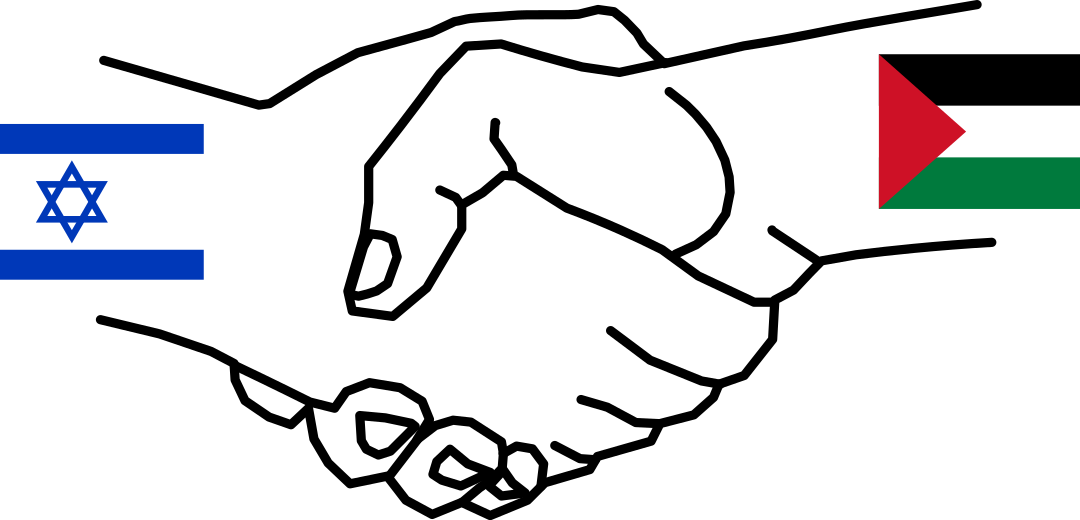edited by P.C. Bosco
In addressing the intricate dynamics of the Israel-Palestine conflict, my sincere hope is to reach those feeling the weight of frustration, the restlessness of uncertainty, and the discontent that arises when grappling with one of the world’s most protracted conflicts. In times like these, we yearn for leadership that unites, and it is with this sentiment that I find a compelling resonance in the approach of Robert F. Kennedy Jr.
The Israel-Palestine conflict stands as an enduring testament to the challenges of our world. A conflict that has outlasted the majority of us, its complexity defies easy solutions. It should not be a matter of choosing sides as dictated by media narratives or news programs, which all too often simplify a deeply nuanced issue. My growing weariness stems from witnessing the persistent toll of war and the loss of innocent lives, irrespective of the arbitrary delineation of ‘sides.’
Aristotle’s wisdom, timeless as it is, posits that all things inherently aim towards some good. Even an individual who becomes radicalized, who turns to terrorism, wasn’t born with that inclination. Their environment, their circumstances, gradually conditioned them in that direction. It’s common sense to acknowledge that a cycle of war and death begetting more of the same results in each new generation inheriting animosity, clouded judgment, and hearts filled with vengeance.
Rage, an egregiously potent emotion, serves as a formidable adversary to reasoned discourse.
Aristotle further suggests that the ideal ruler is a philosopher. A philosopher, by definition, is someone who contemplates profound questions in ethics, metaphysics, logic, and related fields—a lover of wisdom. Observing Robert F. Kennedy Jr., one may discern values resonant with Aristotle’s vision of an ideal leader. Encouraged by these ethical underpinnings, I embark on this discussion devoid of judgment, seeking to delve into the complexities of the matter at hand.
Personal Journey into Understanding
My personal journey into understanding the nuances of the Israel-Palestine conflict began when I discovered that a dear friend had family residing in Gaza. A family home obliterated by a bomb, yet miraculously, the lives of its inhabitants were spared. Now, they share the confines of a school-turned-bomb-shelter with other families. This infuriating revelation spurred a philosophical quest within me—a quest to comprehend the ‘why’ rather than hastily choosing a side to defend.
Expanding my inquiry, I reached out to another acquaintance with over three decades of residence in Israel. By assimilating the information gathered from both sides, I strive to present a balanced perspective that advocates for the sanctity of life and liberty.
Understanding Israel’s Perspective
Jordan Peterson, a prominent psychologist and thinker, injects a nuanced perspective. He contends that the Jews, as a historically successful minority, pose a threat to totalitarian control in the Middle East. Despite enduring the Holocaust, the Jewish population has thrived, establishing Israel as the only non-Muslim nation and a democracy in the region. Peterson asserts that Israel’s strength is perceived as a challenge to regimes seeking total control. In his view, the current conflict may be a desperate attempt by certain factions to curb the rise of democracy before it undermines them.
Drawing parallels to historical events, Peterson likens Israel to the tiny but resilient force of the 300 Spartans at the Battle of Thermopylae. Facing the vast Persian army, the Spartans held their ground, allowing Greek democracy to survive. Israel now finds itself in a precarious position, a tiny entity with the potential to be erased from the map. Recognizing historical patterns, we are tasked with identifying and altering cycles of conflict.
Examining Historical Disparities
The roots of the Israel-Palestine conflict trace back to the United Nations’ adoption of Resolution 181 in 1947. The resolution proposed the partitioning of Palestine into Arab and Jewish states. While Israel was established and admitted into the UN in 1948, a corresponding Palestinian state was not recognized until Palestine declared itself so in 1988. This historical discrepancy, spanning several decades, underscores the challenges faced by the Palestinian people.
Critics argue that the bloodshed of innocent lives is squarely placed on Israel’s hands. However, alternative voices emerge, challenging this narrative. Yousef, the son of a founding member of Hamas, argues that the blame lies with Hamas. He contends that the Palestinian people have essentially been taken hostage by the organization, unable to voice opposition without severe repercussions. Children and adults in Hamas-controlled territories face the threat of punishment or death for dissent. The totalitarian rule perpetuates a narrative that holds Israel responsible for every hardship endured by the Palestinian population.
Hamas’ Role in the Conflict
The uncompromising stance and fundamentalism of Hamas has led to the sacrifice of countless Palestinian lives. Those living in Gaza are often oppressed and live in fear of their leaders. Decades of indoctrination have bred a generation that sees Israel as the root of all their problems.
The oppressive rule of Hamas becomes evident in the recounting of experiences by individuals like Yousef. He shares the brutal methods employed to quash any dissent during his religious indoctrination as a child. The parallels with historical manipulation, such as Hitler’s tactics during the Holocaust, are disconcerting. Hamas, it seems, uses similar tactics to control the narrative and fuel hatred.
The Human Toll and Call for Peace
The toll on civilians, especially children, is the human face of this conflict. For every action, there is a reaction. Members of Hamas, having suffered losses at the hands of Israel, harbor a need for revenge. A call for peace is not a plea to forget historical grievances; rather, it is an acknowledgment that both Israelis and Palestinians deserve to live in peace, free from the specter of war and the confines of bomb shelters.
A sobering statistic emphasizes the urgency of the matter: 20,000 people in Gaza have lost their lives. The deceased leave behind loved ones who are potential recruits for future animosities. The cycle must be broken, and peace must be offered alongside hope for a brighter future.
The Abraham Accords and a Glimpse of Hope
In the labyrinth of conflict, a glimmer of hope emerges with initiatives like the Abraham Accords. These peace discussions involving Arab countries seek amicable relations with Israel. Jordan Peterson’s belief in this alternative path offers a perspective that diverges from the grim narrative of perpetual conflict.
Commending Diplomacy and Advocacy for Peace
In my exploration of this complex issue, I commend Robert F. Kennedy Jr. for his diplomatic approach—a nuanced ability to step back, analyze details unbiasedly, and seek solutions that foster compromise. Unlike political figures who have chosen sides, leading to further conflict and unnecessary deaths, Kennedy’s unique position allows for a unifying stance.
Questioning the Need for Sides
Concluding this exploration, I encourage readers who may have already chosen sides to reflect on their perspectives. What would your five-year-old self think about this choice? Is there a need to investigate the adversary’s opposition? Most importantly, why do we feel compelled to choose a side? Society conditions us to believe in a binary narrative, assuming there is a right side and a wrong side, a right choice and a wrong choice.
Striving for a Third Choice: A Middle Ground
Let’s challenge this binary paradigm and aspire to occupy a third space, where freedom and justice are truly for all. In a world fraught with divisions, it is through nuanced understanding and a commitment to peace that we may pave the way for a future where coexistence triumphs over conflict. The path to lasting peace may be complex, but it is a journey worth undertaking.


